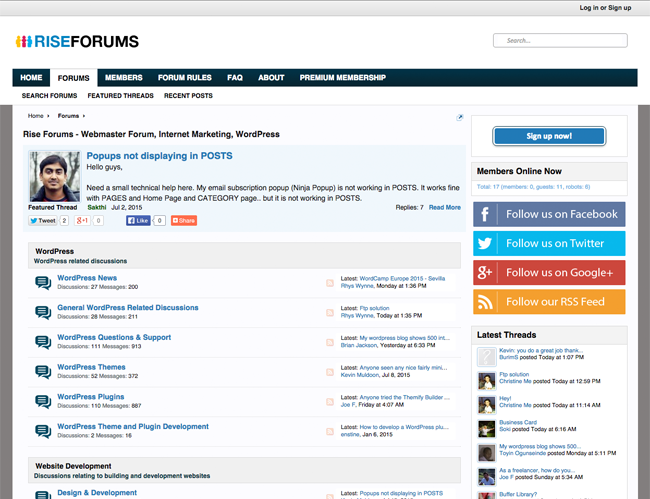Anyone who is self-employed knows that the old cliche “Time is Money” is true. It does not matter if you are a writer, a builder, or a mechanic; if someone is wasting your time, you are losing money.
Eliminating time-wasting clients can be a difficult task and it is something that many freelancers and self-employed people feel reluctant to do since they do not feel they are in a position to turn down additional work.

In this article, I would like to talk about small ways in which you can stop clients from draining all of your time.
An Example of Time-Wasting Clients
I got to thinking about this topic the other day when I was speaking with my friend’s wife. She is a florist and handles flower arrangements for weddings (I won’t use her name in case she does not want it referenced online). During the Summer months, she can have several weddings per week to deliver flowers to, therefore time is a luxury she does not have.
Unfortunately, she has a lot of customers that drain her time. Two of the main problems she experiences are customers that want to chat a lot and customers that change their minds frequently.
For example, after agreeing to deliver flowers to a wedding, she will have a talk with the customer to agree on what they want for their wedding. In theory, this should not take no longer than an hour, however after speaking about the flowers, many customers will spend an additional hour or two just having a chat.

Many of these initial talks occur a year before the wedding takes place (some customers want to talk two years before the wedding). Unfortunately, after everything has been agreed, many customers change their minds and get different ideas about what they want. Therefore, they approach her again and ask to have another chat about the wedding and the flower arrangements.
These talks take up a lot of her time, as do all the emails and phone calls that go along with dealing with customers on a regular basis. The problem is that none of this adds to her bottom line. Whether a customer spends an hour agreeing the flower arrangement or several hours, the money she receives for the job is the same.
My advice to her was to be clear from the start to customers that they can only talk about the arrangement a set number of hours. For example, you could offer different packages and include “Two FREE Hours of Consultation” with each package. Underneath, you could put a note that any additional meetings would be charged at an hourly rate. What this does is explain what is allowed and does so in a positive manner (i.e. “Two FREE Hours”).
One reason I believe she has to do this is because there are no boundaries in place that advise her customers what is allowed and what is not. In the project management world, this is known as scope creep. Wikipedia explains that this can occur when “the scope of a project is not properly defined, documented, or controlled”.
A good example of scope creep is a designer who designs a website for a local company. After delivering the website design to the exact specifications the company requested, the company would then start asking for more things to be added. They may ask them to change the way certain elements of the design look, they may tell them to change the logo, they may want a completely different colour scheme, or they may ask for an online store to be added. Some companies may even say they want the design to be started again because they do not like it; despite the fact they were shown the template before coding and agreed it was exactly what they wanted.
Scope creep is a big problem for companies, which is why contracts are drawn up that specify what is expected of both sides during the project.

I realise my friend’s situation is different to that of a design company or large business. When it comes to weddings, a personal touch goes a long way to making customers happy and could help you get many more customers in the future. However, I do still feel that she could save herself a lot of time and stress by making it clear from the start to customers that they only receive a certain number of hours for consultation.
Doing this might put off some customers, but if these boundaries stop time-wasting customers from even approaching her in the first instance, then her effective hourly rate could almost double overnight and she will have more free time to herself.
How I Eliminate Time-Wasting Clients
For many years, I allowed a lot of my time to be drained by people that were not helping me make more money. It reached a point where I knew I had to take action.
I therefore set up boundaries on my blog that made it clear what I would deliver. I found this to be the best way to eliminate time-wasting clients. It greatly reduces the number of emails you receive, but it means that those who do contact you mean business.
Two good examples of this are my contact page and my services page.
My Contact Page
I have always enjoyed helping people. That is perhaps why I enjoy blogging and why I have always enjoyed running discussion forums.
As you know, helping people takes time. I used to receive dozens of emails every week from bloggers and website owners who wanted help and advice. I always tried to help out and point people in the right direction, but it was a huge drain of my time and I would sometimes find myself helping others instead of working on something important I had to complete.
One way that I reduced the number of help requests was to launch Rise Forums. Whenever someone asks me for help today, I advise them that I offer free support through Rise Forums. This keeps my email inbox clean and allows me to respond to support queries when I have time. And since Rise Forums has a lot of great members, I sometimes find that other members have managed to respond to questions before I have had a chance.

At the top of my contact page I have a note that support is given exclusively through Rise Forums. From time to time, people will email me directly for support, but if they do so, I simply point them to the forums and ask them to post there. Those who need personal consultation can still hire me directly on an hourly basis (information about this is on my services page).
I also have a note on my contact page that states that I do not participate in roundup interviews. This was something I added last year in response to getting approached three or four times per week asking if I would take part in an interview with fifty other internet marketers. Doing these always proved a big waste of my time as it sometimes took 30 to 60 minutes to complete their generic questions and all I got was one link in return.
My Services Page
On my services page you will see that I offer writing services on a per word basis and personal consultation on an hourly basis. Unlike most other freelancers, I clearly display my rates for everyone to see.

Displaying my rates turned out to be the best decision I ever made. Previously, it would take three or four emails for a website owner to admit that they did not have a large budget to pay me for writing. I also received many emails asking me to write guest posts free of charge for a link (sorry, free links don’t pay my bills).
Displaying my rates publicly greatly reduced the number of emails I receive every week from website owners who want me to write for them; however, the quality of approaches I receive is now much higher. Put simply, displaying my rates publicly has eliminated the majority of time wasters who only wanted cheap labour.
It is Impossible to Completely Eliminate Time-Wasting Clients
I have taken many steps on my blog to greatly reduce the number of time-wasting clients who approach me; however, it is impossible to eliminate clients who waste your time 100%.
Yesterday, for example, I received an approach from a comapny who asked if I can offer them a discount (despite the fact they sell products worth hundreds of dollars). I am pretty stubborn about the fact that I do not reduce my rates as if you get into the habit of doing it, that reduced rate becomes your normal rate. The only time I ever consider offering a discount is if a client makes a bulk order (e.g. ten hours consultation).
Clients who ask for discounts normally go one of two ways. If you respond that you do not offer discounts, some will reply “OK” and then continue with an order. Others will continue to ask for a discount. When a client does this, I normally respond with a reply that is short, sweet, but polite, that goes something along the lines of “Thanks, but those are my rates. Should your position on this change, please get in touch”.
If a client continues to push for me to greatly reduce my rates, I either ignore them or send a message stating that I cannot work with them. This may come across as rude, however I have found that the clients that are causing you problems before the work is done are the same clients who are complaining about the work afterwards. You will save yourself a lot of time and energy by simply refusing to work with clients like that.
Be Mindful of Where You Spend Your Time
Good customer service is important and going above and beyond what you promised will make your clients happy. However, it is vital that you manage your time effectively. This is especially true if you work for yourself as you only have a set number of working hours every week.
My advice to all of you is to eliminate time-wasters from the beginning by making it clear from the start what you will deliver when they hire you. You should reduce the time you spend chatting with clients about non-business related issues and ensure most of your time is spent working on tasks that help you make more money.
How do you eliminate time-wasting clients? I would love to know so please leave a comment below in the comment area.
Thanks.
Kevin

